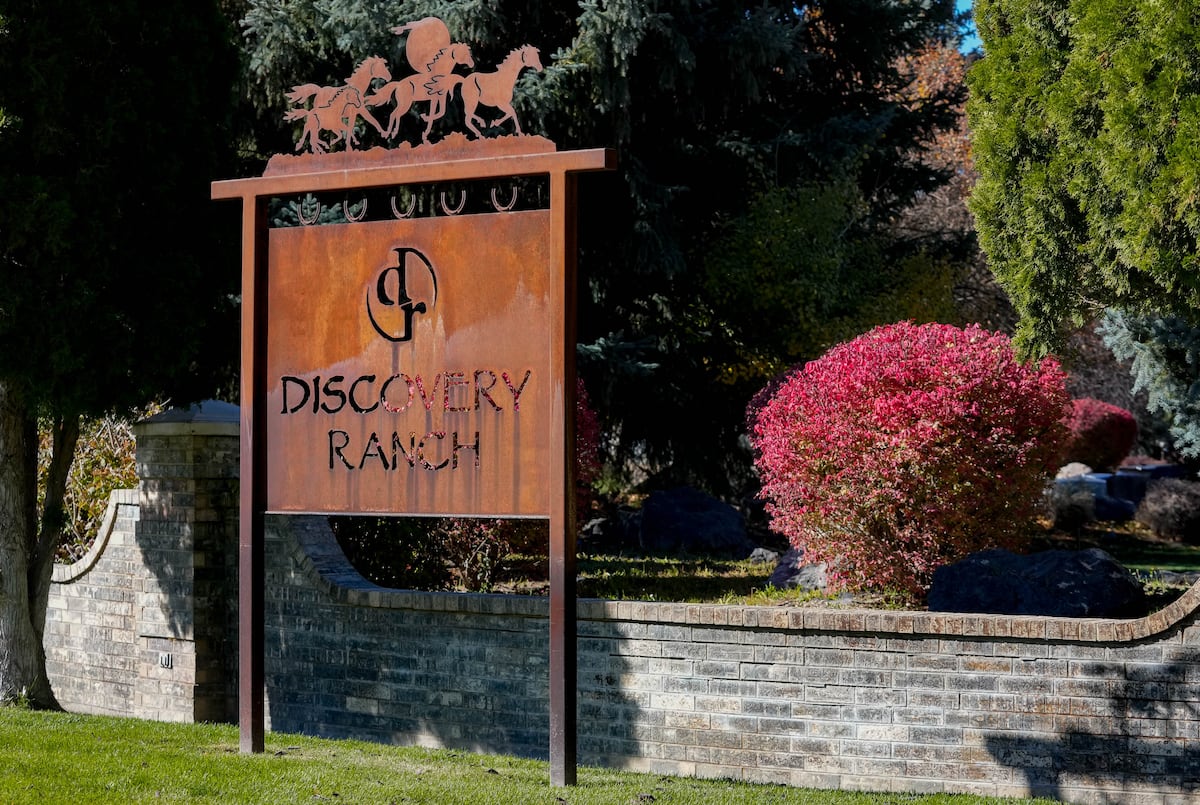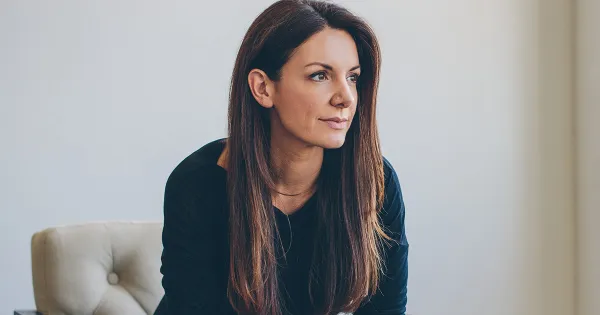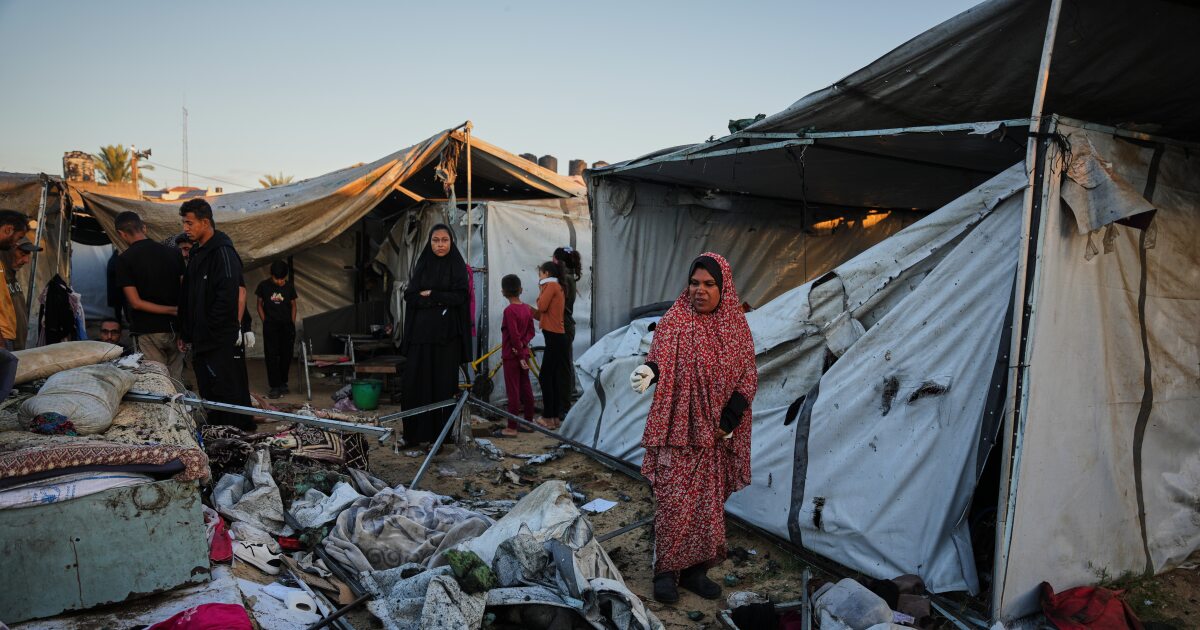Copyright Salt Lake Tribune

Note to readers • This article discusses suicide. If you or people you know are at risk of self-harm, call or text 988 to reach the Suicide & Crisis Lifeline for 24-hour support. Discovery Ranch Academy health care workers physically neglected a 17-year-old boy who died by suicide a year ago at the Utah County teen treatment center, Utah child welfare workers have found. Biruk Silvers’ psychiatrist, therapist and a nurse at the facility did not put the teenager on a suicide watch or admit him to a higher level of care, despite Biruk expressing that he wanted to end his life and that he had made a plan, according to a case summary by the state’s child protective services. Biruk’s mother shared the report, which reflected findings made this summer, with The Salt Lake Tribune. The child welfare division listed its findings as “supported-severe” for therapist William Perry Garso, nurse Nathan Walker and Jonathan Birnkrant, a staff psychiatrist who is also employed by the University of Utah. Gary Guelker, an attorney representing Garso, Walker and Discovery Ranch Academy, said Tuesday that he could not comment on the findings because of a pending civil lawsuit Biruk’s parents have filed them against them. But Guelker added: “Discovery Ranch continues to express their condolences to the Silvers family for their loss during this difficult time.” An attorney representing Birnkrant directed a reporter to U. Health for comment. A spokesperson for the health care provider declined to comment due to patient privacy, but said, “We stand behind the professionalism and compassion of our physician.” It’s not clear whether any of the three have appealed the child welfare findings. The determination could have licensing or other implications for them, and it has spurred local police to take another look at the case for possible criminal charges. But it’s been Biruk’s mother, Kathryn Silvers, who has contacted Utah agencies to urge them over the last year to look closely at the circumstances around Biruk’s death. She told The Tribune that she filed the initial report with child welfare officials. Then, she took that their findings to state licensors to get a case opened there. And, she noted, she had to push the police to send the case to prosecutors. “Why isn’t there a system to connect all of this?” she asked. “Why is it up to the family, the ones grieving, to fight for justice for Biruk’s life?” That work is “exhausting and heartbreaking and makes me question how many other cases are falling through the cracks because people don’t know how to advocate for themselves or push things along,” she added. “You’d think losing a teenager’s life would be enough for Utah to step up and take initiative to protect other kids in care,” she said, “but instead it feels like we are the only ones making sure Biruk’s life means something and that his loss leads to change.” There are several state agencies that regulate and can discipline health care workers and licensed facilities. Here’s what actions they’ve taken since Biruk’s death: Police and prosecutors, who could bring criminal charges A Mapleton police officer closed Biruk’s case in February, according to a police report, after a medical examiner determined the death was a suicide. The officer noted in the report that there was no evidence that Biruk was “encouraged or aided by any other person to harm himself against his will.” Chief John Jackson told The Tribune that after learning of the recent determination from child welfare officials, he decided in October to forward the case to prosecutors for a review. “I just felt it was best to have a legal mind review everything to make sure nothing was missed legally,” he said. Jackson added that “our hearts break” for Biruk’s mother and her family, saying, “This is just such a sad situation all the way around.” The Utah County Attorney’s Office confirmed it has received the case and is evaluating it. Division of Professional Licensing, which licenses people who work in health care Garso, Walker and Birnkrant are all licensed by the Division of Professional Licensing (DOPL), which is part of the Department of Commerce. As of Tuesday, their licenses are in good standing. Melanie Hall, spokesperson for the Commerce department, said she could not confirm or deny whether DOPL was investigating them. But Silvers said she has been told that the division has an open case. Office of Background Processing, which vets people working with vulnerable populations Utah’s Office of Background Processing gives clearance for people to work with vulnerable populations in licensed programs, like Discovery Ranch Academy. It’s part of the Department of Health and Human Services. Katie England, a spokesperson for DHHS, said the background office can revoke a person’s clearance to work with a vulnerable population in a facility if they’ve committed a crime or if staffers locate “non-criminal” findings, which include an abuse or neglect finding from child protective services. England did not say whether Garso, Walker or Birnkrant have had their clearances affected by the child welfare finding. Office of Licensing, which disciplined Discovery Ranch Academy The Office of Licensing, part of DHHS, licenses programs like Discovery Ranch Academy. It determined that Discovery Ranch failed to create a care plan for Biruk after he expressed suicidal thoughts, and that he was not provided with enough supervision to keep him safe. The program also did not follow its suicide prevention policy, the licensing division found, and failed to report a previous instance in April 2024 when a staff member physically restrained Biruk. Discovery Ranch was ordered to pay more than $10,000 in civil penalties for these violations, according to state records, and its license is now in good standing. According to its most recent inspection in September, the program is operating at about half the capacity that it can serve. What happened at Discovery Ranch Academy Biruk’s parents, who live in Illinois, adopted the boy from Ethiopia when he was 7 years old. As he grew older, he struggled with depression and trauma, and his parents sent him to stay at Discovery Ranch Academy in 2024 on the advice of an education consultant. He had been at the Utah teen treatment center for a little more than six months when he died by suicide on Nov. 5, 2024, according to authorities. His parents have filed a civil lawsuit against Garso, Walker, Discovery Ranch Academy and the U., among other defendants. Birnkrant is not a named defendant in the lawsuit, though his employer is. In their suit, the parents allege that staff left Biruk alone for a “significant period of time,” and that he was allowed access to a belt that contributed to his death. Biruk’s mother also shared with The Tribune records detailing an investigation by the Office of Licensing. According to summaries of Discovery Ranch Academy staff interviews, Biruk had been left out of the sight of staff when another young person at the facility had tried to drink cleaning supplies, which required urgent attention. The employee who had been assigned to watch Biruk and other boys while the remaining staff responded to the teenager who was trying to drink chemicals had not been told that Biruk had been suicidal, according to licensing notes. He told investigators that he normally works in a different area of Discovery Ranch and wasn’t familiar with Biruk, and that “staff usually discuss this type of thing but he was just covering a shift in that house and was not aware.” Biruk was not in this staffer’s line of sight when he died in his bedroom, according to licensing notes.



